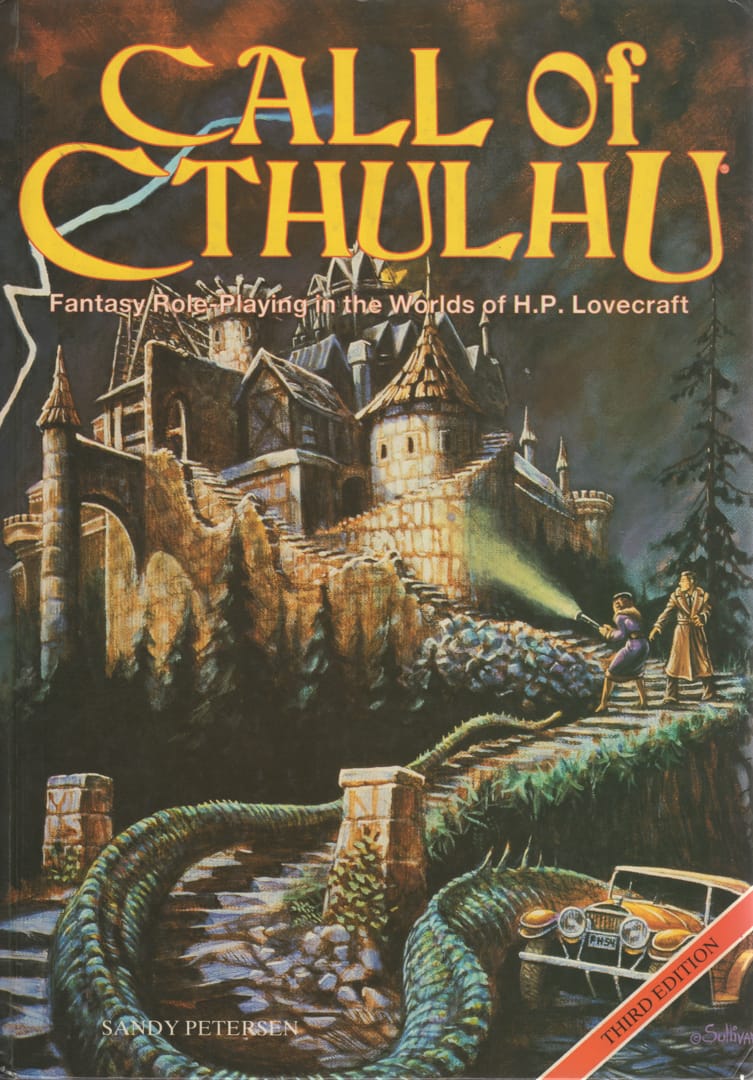Weise Worte über den Medienwandel

Gestern las ich Texte über Print- und Digitaljournalismus. Heute gehe ich alte Interviews mit Rollenspiel-Designern durch und da finde ich in einem Gespräch mit Sandy Petersen (Call of Cthulhu, Age of Empires, Doom) eine bemerkenswerte Haltung zu solchen Formatfragen. Ich fragte Petersen nach der Zukunft von Pen&Paper-Spielen. Petersen liebt Brettspiele, er liebt Pen&Paper-Rollenspiele und komplexe Computerspiele. Er hat für alle Trägermedien entwickelt. Seine Haltung: Für ihn sind Debatten, ob ein Trägermedium nun besser oder schlechter ist per se uninteressant. Er spricht darüber, was man anders und besser machen kann. Er ist begeistert von den Möglichkeiten jedes Mediums, neue Spielideen zu entwickeln. Auszüge:
You have this young audience who grew up with computer games. How can you introduce them to pen‑and‑paper games, board games? Do they have different expectations? How will this work?
Sandy: I guess I don’t view my job as being to evangelize people into playing pen‑and‑paper games. If they find it or see it or know about it, then when they play them, they usually love them. But the games are there for them to try out.
(…)
What is the future of pen-and-paper role‑playing games?
Sandy: Some paper guys, I think, are resentful of computer games taking away their players. And they do ‑‑ when computer games came out, there was less tabletop games, because people were playing computer games, right? That’s tough. When cars appeared fewer people took the train. You can’t turn back the clock ‑‑ that’s how it is. But there are still paper games, and there will always be, probably. And there are still computer games, and there will always be.
Because they have their own strengths?
Sandy: They have their own strengths. And yeah, they compete to an extent. When you couldn’t play “World of Warcraft”, you had to play tabletop games as a group. Now, if you live in Yellow Point, Montana, and don’t know anyone, you can still play role‑playing games thanks to World of Warcraft. I think that’s a good thing.
(…)
Are there certain mechanics or elements in computer games that were influenced by tabletop gaming?
Sandy: Yes. One of the issues with computer games is that some computer game designers and often the programmers, they don’t have very much experience in board games or pen‑and‑paper games. They only play computer games, so when they do a new game, they only think in terms of what they’ve seen in computer games.
The thing is, there are actually many fewer computer games than board games, because to do a computer game takes a team of 25 or 30 people a year and a half to make, so you just can’t make as many. A board game takes one guy about six months.
Also, because board games are so cheap to make, and they don’t make much money, they’re more a labor of love ‑‑ so there’s a lot more wacky board games. Whereas if someone’s going to invest 500 thousand or a million dollars in a computer game, it better be something that is really mainstream, they think. So board games have a much wider variety of ideas and concepts.
This means that if you’ve worked in board games, when you go into computer games, you’ve been exposed to a lot of other ideas and a lot of concepts and so often there’s new ways of solving problems that the computer gamers don’t get, or won’t think of on their own. Because you can’t reinvent everything.
Designers who do a lot of board games or who have worked in that field, I’ve found, make much better computer game designers. Even if they’re doing some mainstream computer game, they have interesting ways of solving issues and approaching things. So there is stuff you can draw…
(…)
Is there more room for new ideas out today? Or less?
Sandy: There is now, because back in the mid 80’s, to do a good computer game or a good console game, you had to have a huge team and work for a year and a half or more. To do one of the Age of Empires games, it took us 40 to 50 guys, one to two years. It cost tens of millions of dollars. It probably cost about $10 million dollars, or $8 million, in that range, or $11 million. They were certainly making profits.
To do an iPhone game, it takes a team of four or five guys six months to a year. It’s a lot cheaper. You get a preferably good game. Suddenly, small creative teams can do things that are a little bit lofty. They can make a profit on the game, even if it only sells 10 or 20 thousand copies, whereas with Age of Empires we had to sell like a million copies of the game to make a profit. We did, but we had to. We couldn’t take risks. Now, you can take risks and have a game. We didn’t sell 50,000 copies of the game, but you know what? We sold 20,000. That made us enough money to do our next game. Our salaries were fed. There’s a lot more room for wackiness, because the teams can be small now, but there are also the big teams. There are people working on the next big MMO, the next big shooter, the next big RTS. There is a wider range. In the 80s, you didn’t have those small teams. Now, you do.


